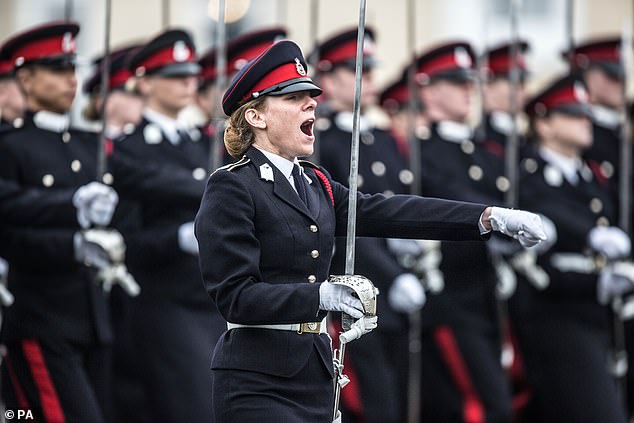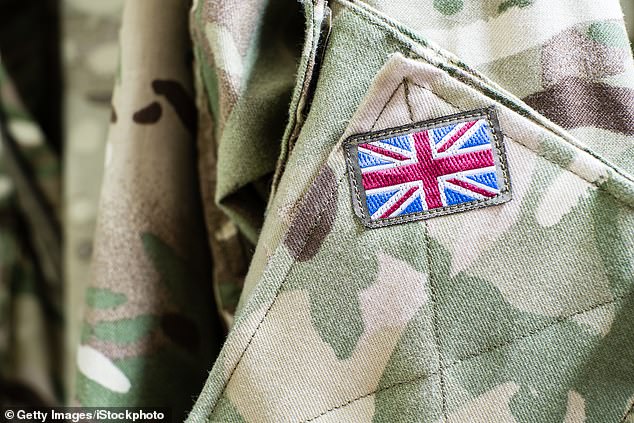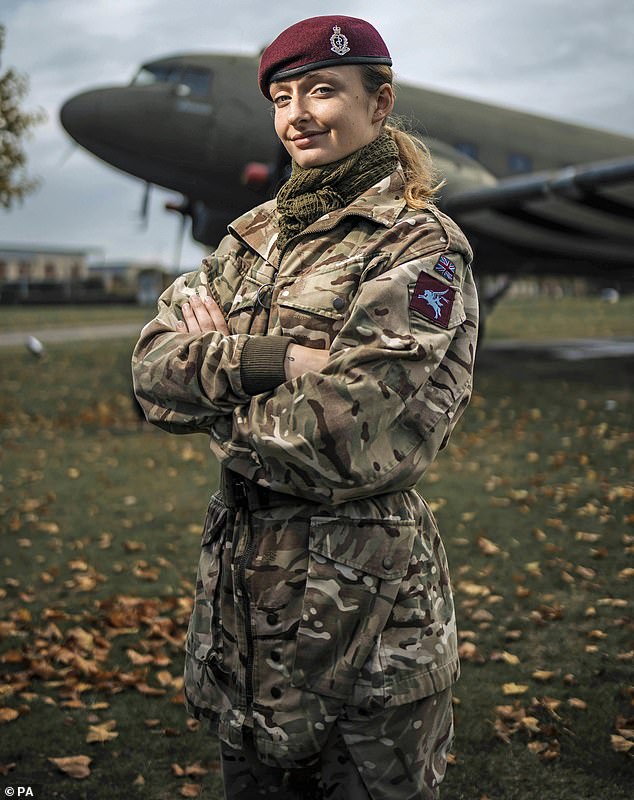Female army recruits have been told to start lifting weights and bulking up if they want to serve on the front lines.
A major new study by the Army’s physical training chiefs has found that women who expect to serve in infantry units (known as close combat roles) “experience a higher rate of injury than men” and are more susceptible to bone fractures and hip injuries.
As a result, the Army study says men and women may need to undergo different training regimens, with women requiring additional strength training to reach the required level.
The Army has allowed men and women to serve together in all roles, including infantry and SAS, since 2018. At the time, then-Defence Secretary Gavin Williamson said the Armed Forces would be “determined by ability alone and not gender”.
Commanders have avoided having different levels of training for men and women, insisting there should be no lowering of standards for women who want to serve in combat units.
Female army recruits have been told they must lift weights and bulk up if they want to serve on the front (file photo)

Women who aspire to serve in infantry units, known as close combat roles, “experience a higher rate of injury than men,” a study showed (file photo)
But a new report, published in the journal Soldier, found that “fewer women than men are able to achieve physical employment standards for ground combat roles after three months of periodized strength and aerobic training, suggesting that different strategies may be required to maximize performance for both sexes.”
The study, based on 66 research projects over the past eight years, also found that female recruits suffer hip injuries when marching alongside men because “military women are typically shorter than men” and “take steps that are too long.”
Professor Julie Greeves, the Army’s chief physiologist, said additional training was required for women.
She said: ‘Women won’t get stronger by accident – they need more consistent training because they don’t have the same levels of testosterone, the stimulus for muscle growth.’
Nearly 50 per cent of female recruits who join up in the hope of serving in one of the frontline units fail to complete the course, often due to the demands of physical training, Ministry of Defence figures reveal.
Currently, there are only about 100 female soldiers serving in the infantry, where troops are expected to be able to carry heavy loads of more than 50 pounds while conducting long marches through arduous terrain.
In 2020, Captain Rosie Wild, 34, became the first woman to pass a gruelling entrance test into the Parachute Regiment since the regiment was formed in World War II.
She was described as a “pioneer” after passing the P Company course, which many men fail. However, the number of women serving in the infantry remains very low.
Women are allowed to serve in all frontline units, even those with the most physically demanding selection courses, such as the Parachute Regiment, the Royal Marines and the Special Forces.
But they have to pass the same tests as their male colleagues, even though many lack the physical attributes, such as muscle mass, needed to make the grade.

Women are allowed to serve in all frontline units of the army but are required to pass the same tests as their male counterparts, although many lack the physical attributes to achieve the rank (file photo)
The new Army study, called Optimizing Women’s Health and Performance in Close Combat Roles, found that female recruits are more likely to succeed if they build muscle through weight-bearing resistance training and then eat 30 g of protein after each workout.
Professor Greeves said: ‘We took muscle samples and found that during the early stages of resistance training, men gained strength by building more muscle, but women did so by using more muscle they already had.
‘It means that women need to train more consistently and for longer periods of time to gain and maintain that muscle mass.
“My main advice is for female staff to do regular, progressive, heavy resistance training alongside their cardio. Anyone who doesn’t will struggle to pass fitness tests and may be more prone to injury.”
Army physical training instructor Charlotte Spence said: “Some women worry that they will weigh more as a result of resistance training, and they may, but they will be slimmer.”
Last night Colonel Philip Ingram, a former army intelligence officer, said: “Military fitness training and testing have been designed for men and by men. They have not taken into account the physiological differences that exist between men and women.
‘All roles in the military are now open to women, so it doesn’t surprise me that additional fitness strategies specifically for women are needed to prepare them for male-oriented tests.’


